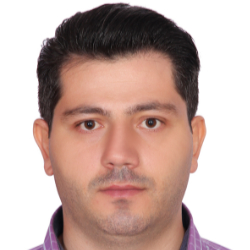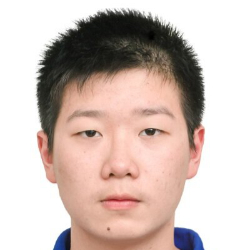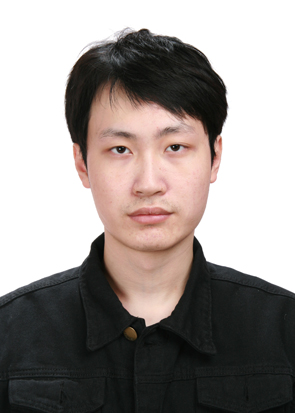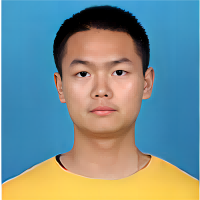Artificial intelligence
Research
Artificial intelligence research is a particular strength in the School of Computing and Information Systems. Our researchers address many different approaches to AI, encompassing deep learning, data mining, machine learning, natural language processing, and agent-based systems. Our theories and techniques can be applied to a wide range of practical problems, including cyber-security, health, finance and government.
Melbourne is also host to the IBM and ARC Training Centre for Cognitive Computing for Medical Technologies, which is furthering our research and translating into solving critical needs in the domains of medicine and health.
Research Themes
-
Artificial Intelligence Assurance Lab
Our research explores ethical, regulatory and legal issues relating to Artificial Intelligence. We validate AI technologies with respect to quality, safety, privacy, and reliability.
-
AI and Autonomy Lab
Intelligent systems can act (semi-)autonomously, working alongside human experts to analyse and help solve complex challenges. Designing good agents needs to balance the ability of agents to work effectively with other agents and human experts to have the maximum real-world impact.
-
Natural Language Processing
-
Digital Health
Digital health refers to the use of data and technology, such as mobile apps, wearables, and other digital tools, to improve healthcare delivery, patient outcomes, and overall health and wellness. We work in several areas of digital health and integrate data, analytics, and communication technologies to help healthcare providers and patients manage and prevent diseases, track health metrics, and improve healthcare access and efficiency.
Dr Naveed Akhtar
A/Prof Renata Borovica-Gajic
Dr Nestor Cabello Wilson
Dr Andrew Cullen
Dr Mansoureh Maadi
Dr Bastian Oetomo
Dr Cameron Zachreson

Abir Naskar
Identifying Adolescent Risk-taking Behaviours from Clinical Text
abir.naskar@student.unimelb.edu.au
Anh Pham
Measuring and improving the usability of agent-based models for infectious disease modelling
baduyanh.pham@student.unimelb.edu.au
Aryan Yazdan Parast
Improving robustness of machine perception by intervention
ayazdanparas@student.unimelb.edu.au
Aso Mahmudi
Developing advanced processing tools for under-resourced languages focusing on morphological features
amahmudi@student.unimelb.edu.au
Chen Wang
Inverse Reinforcement Learning Approach for intent inference in adversarial environments
cww3@student.unimelb.edu.au
Chenhao Gu
Reconstructing social influence networks and tracking opinion dynamics on social media
chenhaog1@student.unimelb.edu.au
Craig Lewis
Entrepreneurial initiatives and team collaboration: effects of modes of behaviour on startup team effectiveness and success
c.lewis1@student.unimelb.edu.au
Damien Curran
Towards a unified narrative representation for computational understanding of narrative text
dcurran@student.unimelb.edu.au
David Adams
Automatic Insights: Database management in the era of data deluge
daadams@student.unimelb.edu.au
Demian Aaron Inostroza Amestica
Explaining cross-lingual variation in grammatical case systems through Information-theoretical approaches
demian.inostrozaamestica@student.unimelb.edu.au
Dimuthu Kariyawasan
Multi-modal spatial-temporal graph neural networks for user stance prediction
dkariyawasan@student.unimelb.edu.au
Dingyang Lyu
Enhancing spatio-temporal graph learning: addressing distribution shift and scalability
dingyang.lyu@student.unimelb.edu.au
Dinuka Manohara de Zoysa
Discovering insights through intent prediction and guided exploration
bdezoysa@student.unimelb.edu.au
Farzaneh Zirak
Using eye-tracking technology to improve visual data exploratory tools performance
farzaneh.zirak@student.unimelb.edu.au
Fengze Sun
Effective and efficient algorithms for region similarity queries
fengzes@student.unimelb.edu.au
Gisela Vallejo
A fair plan towards mitigating bias and misinformation
gvallejo@student.unimelb.edu.au
Haitian He
Video anomaly detection in crowded scenes at multi-timescale
haitianh@student.unimelb.edu.au
Haoran Zhao
Invariance testing in LLM: Through the classification and recognition task from multi-modality
haoran.zhao.2@student.unimelb.edu.au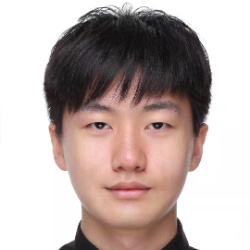
Haoyuan Li
Comprehensive de novo protac design via denoising diffusion probabilistic models
haoyuanl2@student.unimelb.edu.au
Harindu Ashan
Adversarial machine learning for anomaly detection
asugathadasa@student.unimelb.edu.au
Harvey Zhang
Optimization of production by selected turbine de-rating at Macarthur Wind Farm
lantaoz@student.unimelb.edu.au
Heethanjan Kanagalingam
Towards the effective adaptation of foundation models
heethanjan.kanagalingam@student.unimelb.edu.au
Hesam Asadollahzadeh
Detecting and mitigating LLM-based impersonation in dialogues: Trustworthy generative models in adversarial settings
hesam.asadollahzadeh@student.unimelb.edu.au
Hong Yi Lin
Using neural machine translation approaches to automate code improvements for code reviews
holin2@student.unimelb.edu.au
Hugo Lyons Keenan
Improving the safety properties of machine learning systems with mechanistic anomaly detection
hlyonskeenan@student.unimelb.edu.au
Hyunsuk (David) Chung
Advancing multi-modal information retrieval using LLM-based knowledge management
hyunsuk.chung@student.unimelb.edu.au
Isura Manchanayaka
Identifying coordination and influential people in social media and their intentions
imanchanayak@student.unimelb.edu.au
Jemima Kang
Using NLP to determine semantic drift in mental health discourse
jemima.kang@student.unimelb.edu.au
Jiacheng Zhang
Enhancing trustworthiness and robustness of machine learning models in adversarial environments
jiaczhang1@student.unimelb.edu.au
Jiaheng Dong
RiTuaL: Reliable and trustworthy machine learning for time series modeling in mobile health
jiahengd@student.unimelb.edu.au
Jiajia Song
What makes AI planning hard? From complexity analysis to algorithm design
jiajia.song@student.unimelb.edu.au
Jiani Xie
Certified robustness for audio-based machine learning systems
jianix1@student.unimelb.edu.au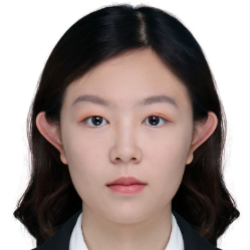
Jie Huang
Leveraging generative AI to inform health services research
jiehuang3@student.unimelb.edu.au
Jie Yang
Save you from irrational decisions: a responsive agent affected by user emotions
jieyang3@student.unimelb.edu.au
Jinxi Wang
Experimental design and performance pptimisation of monoclonal antibody production in bioreactors under insufficient data based on machine learning
jinxi.wang1@student.unimelb.edu.au
Johnson Zhou
Applied deep learning control for neurological disease models
zhoujj@student.unimelb.edu.au
Kejian Cui
Using chatbots and natural language processing to train and evaluate mental health therapists
kejian.cui@student.unimelb.edu.au
Kevin McDonald
Enhancing reinforcement learning algorithms for team-based systems
kevin.mcdonald@student.unimelb.edu.au
Laura Simoes Camargo
Ethical education in Computing: A path to prevent Artificial Intelligence harm?
lcamargo@student.unimelb.edu.au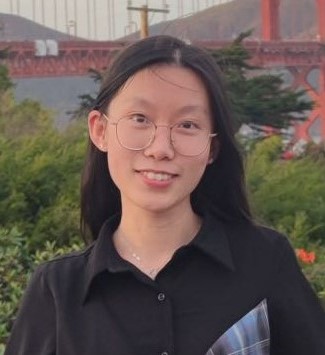
Liu Liu Chen
Understanding Internalized Stigma in People with Mental Health Conditions on Social Media: Manifestations, Influencing Factors, and Impacts
liuliuc@student.unimelb.edu.au
Marzieh Parvaneh Akhteh Khaneh
Designing online learning environment based on peer feedback (dialogic interaction and self-reflection)
mparvanehakh@student.unimelb.edu.au
Mashnoon Islam
Using cognitive models to understand memorability of real-world images
mashnoon.islam@student.unimelb.edu.au
Matteo Guida
Towards multilingual models of framing detection in news coverage of contemporary polarizing issues
guida@student.unimelb.edu.au
Mehreen Mubashar
Adapting learning to overcome memorization of sparse data subsets
mehreen.mubashar@student.unimelb.edu.au
Meng Cai
Enhancing transformer models: a study of information bottleneck theory for efficient representation learning
mcca2@student.unimelb.edu.au
Mohammad Reza Ghasemi Madani
Understanding the unseen: A theoretical and computational framework for explainable language models

Mohammed Ishaq Mohammed Shoeb Ansari
Responsible use of generative AI models
mohammedishaq.mohammedshoebansari@student.unimelb.edu.au
Mojgan Kouhounestani
Modification of the temporal data embedded in electronic medical records dataset targeting cancer prediction using machine learning methods
mojgan.kouhounestani@student.unimelb.edu.au
Muqing Guo
Understanding AI dependency and AI’s impact on critical thinking in higher education: Factors and implications
muguo@student.unimelb.edu.au
Nadeeshan Dissanayake
Intelligent intersection management for improved traffic safety
nadeeshan.dissanayakemudiya@student.unimelb.edu.au
Nicholas Liang
LLM-assisted detection of sensitive data leakage and graud using knowledge graphs
nicholas.liang@student.unimelb.edu.au
Nimeshika Udayangani
A pixel-level unsupervised approach to image anomaly detection
nhewadehigah@student.unimelb.edu.au
Oshada Jayasinghe
Real time digital twins for intelligent transportation systems
jjjayasi@student.unimelb.edu.au
Pagnarasmey Pit
Unlearnable text and protecting digital data from exploitation
pitp@student.unimelb.edu.au
Pagnarith Pit
Macro-economic policy investigation through agent-based modelling
ppit@student.unimelb.edu.au
Paul Ou
Data-driven methods for modelling, optimising and validating digital bioprocess development
pou1@student.unimelb.edu.au
Priyanka Pillai
Understanding the impact of population heterogeneity on the computational modelling of STIs
ppillai@student.unimelb.edu.au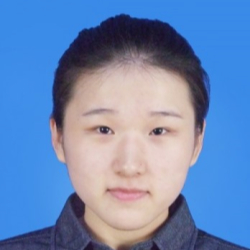
Ran Liang
Spatio-temporal traffic prediction using deep learning models
ranliang@student.unimelb.edu.au
Rinu Ann Sebastian
Explainable computer vision to improve human-machine interaction
rinuanns@student.unimelb.edu.au
Roben Delos Reyes
Modelling the impact of pandemics on health care services
roben.delosreyes@student.unimelb.edu.au
Robert Langtry
Machine learning for automated generation of validated infra-red signature models
r.langtry1@student.unimelb.edu.au
Sameera Vithanage
Towards understanding user perceptions of fake news on social media
vithanage@student.unimelb.edu.au
Sandra Arcos Holzinger
Enhancing robustness in machine learning systems: a multimodal setting with a focus on speech
s.archolz@student.unimelb.edu.au
Saumya Hansanie Karunadhika
Development of a novel algorithm for motif discovery and anomaly detection in medical time series data from ventilators
saumya.karunadhika@student.unimelb.edu.au
Shaona Cheng
Agitation States Computing for Tailored Music Recommendation
shaona.cheng@student.unimelb.edu.au
Shengxiang Gao
Enhancing large language models and knowledge bases through mutual integration
shengxiang.gao1@student.unimelb.edu.au
Shuo Yang
Multimodal commonsense knowledge distillation for visual question answering
shuo.yang.2@student.unimelb.edu.au
Sing Chee Tan
Improving rapid response systems through predictive analytics
singct@student.unimelb.edu.au
Siyi Wang
Multimodal speech and language Understanding in low-resource and real-world environments
siyi.wang.4@student.unimelb.edu.au
Songlin Du
Collaborative human-ML decision making for medical diagnostics: an ICP-based approach
sodu@student.unimelb.edu.au
Susan Sheldrick
"Computer says no": impacts of AI in information systems for rural and remote small businesses
ssheldrick@student.unmelb.edu.au
Tao Shi
Memorisation or generalisation? Evaluating the creativity of large language models
tao.shi@student.unimelb.edu.au
Thi Xuan May Le
Shapelet transformer for time series and its applications in healthcare
xuanmay.le@student.unimelb.edu.au
Thye Shan Ng
Modular multimodal architectures for plug-and-play applications
shan.ng@student.unimelb.edu.au
Tianyi Zhang
Digital phenotyping (personal sensing) for mental health and well-being
tianyiz4@student.unimelb.edu.au
Tien Dung Pham
A robust datamining approach to cell culture media optimisation
tiendungp@student.unimelb.edu.au
Tingxuan Wang
Modelling 3D shape of sands from X-ray computed tomography images
tingxuanw@student.unimelb.edu.au
Tom Harris
Multiscale modelling of airborne pathogens: Investigating the role of within-host and between-host factors in transmission
thomash1@student.unimelb.edu.au
Tuan Duong (Tony) Trinh
Advancing responsible generative AI in computer vision
tuanduong.trinh@student.unimelb.edu.au
Wachiraphan Charoenwet
Pragmatic use of CodeQL in the Context of Code Review
wcharoenwet@student.unimelb.edu.au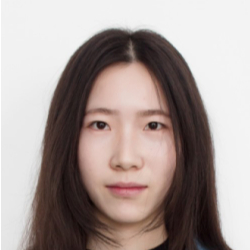
Xueqi Ma
Adversarial learning based on manifold learning and graph-based learning
xueqim@student.unimelb.edu.au
Yang Xiao
Leveraging multimodal large language models for audio generation
yang.xiao.1@student.unimelb.edu.au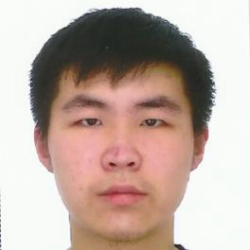
Yuhao Li
Robust and explainable medical data mining and its application
yuhao.li@student.unimelb.edu.au
Yuxiang Wang
NeuralDB: unleashing the power of neural networks in database management systems for intelligent data processing
yuxiang.wang8@student.unimelb.edu.au
Zhenkai Zhang
To solve the current problems of NeRF and to explore the application of NeRF in robotic vision or automatic drive
zhenkai.zhang@student.unimelb.edu.au
Zhiaho Pei
Reinforcement Learning for robust decision-making under deep uncertainty
zppei@student.unimelb.edu.au
Zihan Xu
Exploring the psychological-social impacts of sexually transmitted infections (STIs) across different demographics and data sources
xu.z2@student.unimelb.edu.au


